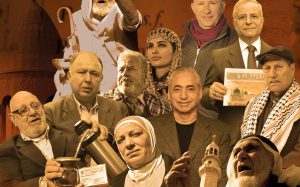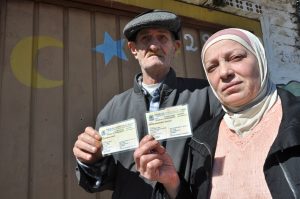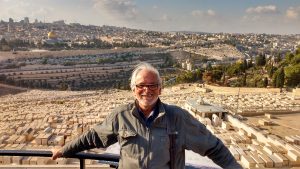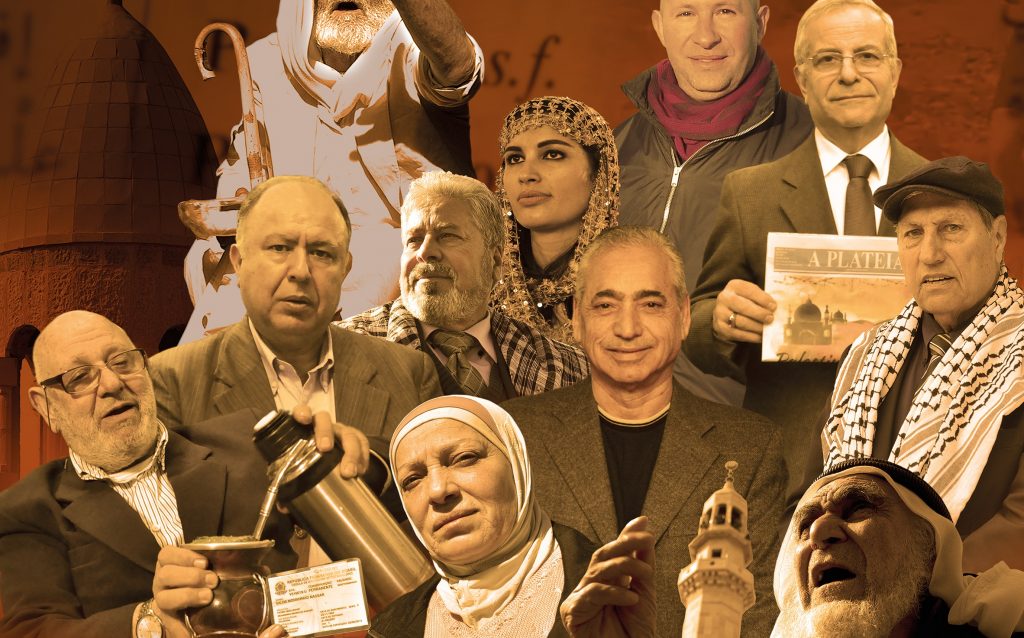São Paulo – The documentary “A Palestina Brasileira” (The Brazilian Palestine, Brazil, 2018, 77 minutes) is seeking domestic and international distribution. The feature film, a portray of Brazil’s largest Palestinian community, in Rio Grande do Sul, was launched in January by cable channel ‘Curta!’. The film was produced by CenaUm Produções and was directed by Omar de Barros Filho. The shootings took place in five cities in Rio Grande do Sul state (Porto Alegre, Canoas, Sapucaia do Sul, Uruguaiana and Santana do Livramento) and in several cities in Palestine between July and September, 2016.

In an interview by phone with ANBA, Barros, who is also the film’s screenwriter, said that the documentary’s initial idea came from an ANBA’s news story on the Palestinian community in Rio Grande do Sul. “I read the ANBA news story and decided to make the documentary and began to research more on the Palestinians here in Rio Grande do Sul,” said Barros, who became interested in the Arab world six years ago, after a visit to Seville and Granada, Spain, regions with a strong Arab-Islamic historical, cultural and architectural influence.
Besides Portuguese, the documentary already has subtitles in Spanish, Italian, English and Arabic, and the film’s producing company is seeking distribution in Brazil and abroad, since the movie, according to the director, communicates with the whole world, since Palestinians are spread out in many regions of the globe. “There are five million Palestinians from the diaspora throughout the world,” he said. According to estimates from Palestine’s embassy in Brasília, Brazil receives, on average, 60,000 Palestinians, with around 30,000 going to Rio Grande do Sul alone.
“The Brazilian Palestine” has been screened in Brazil’s south, and this Saturday (07) can be seen at Cinemateca Capitólio, in Porto Alegre, at 7: 30 pm. The documentary will also be included at the São Paulo Black International Film Festival, in São Paulo, scheduled for May. Those interested in distributing the movie or hosting special screenings can contact Barros via phone (55 51 99253-0887) or via email [email protected].
Behind the scenes

The movie tells the stories of eight families of Palestinian origins living in Rio Grande do Sul and provides a bridge to their origins in Palestine, interviewing friends and families still living in conflict zones. The director also portrays the hard lives of Brazilians living in Palestine.
“I wanted to make a film using the language of emotions, showing family ties [of these characters] that were left behind due to economic and political reasons,” said Barros, who interviewed families that came to Brazil between 1950 and 1960, right after the foundation of the Israel state, which triggered the conflicts in the region. A Palestinian couple that appears in the movie came to Brazil’s south in the 2000s fleeing the war in Iraq, the place (Baghdad) where they lived for decades after fleeing the conflicts in Palestine.
Barros said that all Palestinians interviewed in Rio Grande do Sul are not authorized to return to their homeland, and all of them, with exception, would like to return, even if only to visit. “It’s their house, their home, the place of their roots, of course they want to go back,” said Barros, mentioning also the importance of the physical presence of the house in the Arab culture as a symbol of family structure and stability.

About the director
This is Barros’ first documentary. His first was a medium-length fiction film from 1986 on the El Salvador war, called “Adyos General”. Besides being a filmmaker, Barros is also a journalist, worked in conflict zones, mainly in Central America, and has published books on the issue. He also worked as an editor and reporter on Versus and Jornal da Tarde newspapers, both now shut down. According to the director, the next step for the project is to turn the movie into a book, with no date yet set for the launching.
Translated by Sérgio Kakitani




